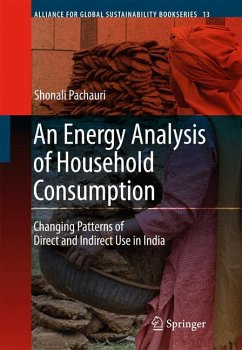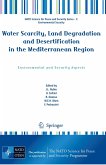With energy consumption set to become one of the biggest issues in the daily lives of householders around the world, this book could not be more relevant - despite the fact that it focuses on India. Pachauri adopts a socio-economic approach to analyzing the energy system and energy consumption in India from a household perspective. The work also incorporates two crucial aspects often ignored: namely, the importance of non-commercial sources of energy, and diversity in the patterns of energy usage.
Dieser Download kann aus rechtlichen Gründen nur mit Rechnungsadresse in A, B, BG, CY, CZ, D, DK, EW, E, FIN, F, GR, HR, H, IRL, I, LT, L, LR, M, NL, PL, P, R, S, SLO, SK ausgeliefert werden.









